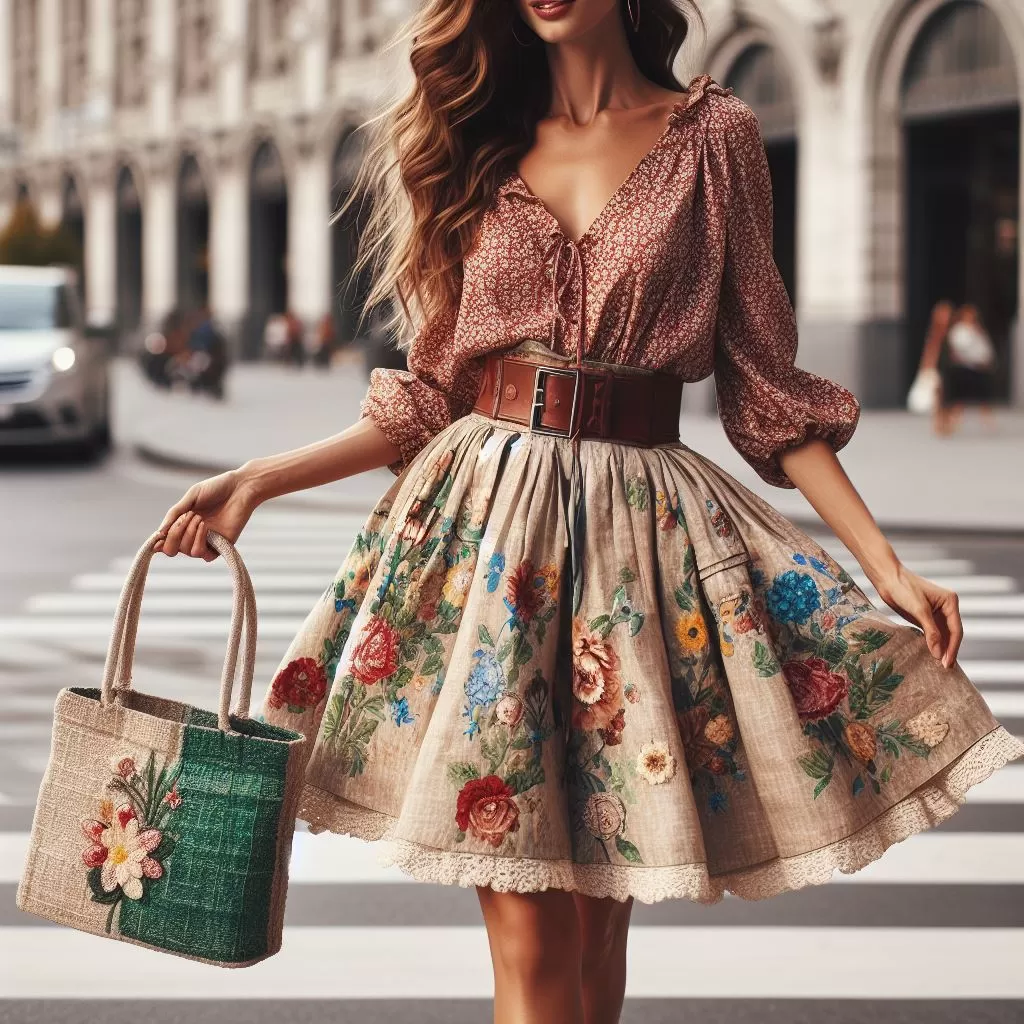Shopping sustainably can be deeply satisfying, but decoding sustainable fashion labels can feel like a maze. With so many certifications on clothing and other fashion items, how do you know which ones actually matter?
Many of us shop “sustainably” simply by trusting words like eco-friendly, organic, or vegan. But often, we don’t realize there’s more to it—we’re missing out on understanding the sustainable fashion certifications behind these labels.
No worries! That’s why we’re here—to decode these certs so you’ll know exactly what they represent. This will empower you to make more informed choices when hunting for sustainable fashion.
Buckle up and let’s get started!
Jump To:
Toggle
Why Decoding Sustainable Fashion Labels Is Important
Brands often make big claims about being “green,” certifications act as the proof you need. These labels help you trust that the clothes you’re buying meet certain environmental and ethical standards. Without them, it’s easy to fall for greenwashing—when companies use misleading information to appear more eco-friendly than they really are.
By decoding sustainable fashion labels, you can confidently select clothing that reflects your principles. Plus, you’ll avoid being tricked by vague marketing terms like “natural” or “ethical” without any real substance behind them.
Sustainable Fashion Certifications Labelling You Should Know
Without wasting time, let’s get to decode some of the most trusted sustainable fashion labels out there. These certifications help ensure that the clothing you’re purchasing is truly eco-friendly, ethically made, and safe for you and the environment.

1. GOTS Certification: What It Means for Sustainable Clothing
GOTS is a gold standard when it comes to organic textiles. In fact, this certification ensures that at least 70% of the fibers used in a garment are organic, and the entire production process meets strict environmental and social standards.
So, if you’re buying a GOTS-certified t-shirt, you can feel good knowing it’s made with organic cotton and that the workers who produced it were treated fairly.

2. Fair Trade Certified: Supporting Ethical Fashion
Fair Trade Certified labelled products ensure that workers are paid fair wages and work under safe conditions. Additionally, this certification supports community development by giving back to the regions where the garments are produced.
Undoubtedly, buying a Fair Trade Certified item isn’t just about purchasing clothing—it’s about supporting people’s livelihoods in developing regions.

3. OEKO-TEX® Certification: Safe, Non-Toxic Fashion Explained
OEKO-TEX® sustainable fashion certification label focuses on safety for consumers. This certification ensures that textiles are tested for harmful substances. Therefore, if a piece of clothing has the OEKO-TEX® label, then you know for sure it’s free from harmful chemicals.
For example, a pair of OEKO-TEX® certified jeans won’t contain toxic dyes or substances that could harm your health or the environment.

4. PETA-Approved Vegan: Shop Cruelty-Free Fashion
When it comes to animal welfare, choosing fashion responsibly starts with the PETA-Approved Vegan label. This certification confirms that no animal products were used and no animal testing occurred during the garment’s production.
In fact, whether you’re shopping for vegan leather bags or cruelty-free shoes, this label empowers you to make stylish and compassionate fashion choices.

5. Cradle to Cradle Certified: Fashion Built for a Circular Economy
Unlike many labels that focus only on materials, the Cradle to Cradle Certified™ certification takes a full-lifecycle approach—from production to disposal. It ensures that all materials used are safe for both humans and the environment, while actively promoting circularity through reuse and recycling.
As a result, when you choose a Cradle to Cradle Certified™ product, you’re supporting a circular economy where nothing goes to waste.
How to Decode Sustainable Fashion Certifications on Labels
Now that you’re familiar with the top certifications, the next step is learning how to find them. Most certifications appear clearly on clothing tags, especially for brands that take sustainability seriously.
If you’re shopping online, check the product descriptions or brand’s sustainability page. Reputable brands are proud to showcase their certifications.
As a tip, when you see terms like “eco-friendly” or “natural,” look for a logo or third-party verification to back it up. Without proof, it could be greenwashing.
You can also check out third-party sites like Good On You to get a deeper understanding of how brands score on sustainability.
Certified Sustainable Fashion Brands Worth Knowing
Fortunately, some fashion brands make it easy to shop responsibly by earning multiple certifications.
For example:
People Tree is both GOTS and Fair Trade Certified, combining organic materials with ethical labor practices.
Armedangels holds GOTS, Fair Trade, and OEKO-TEX® certifications, offering style that’s safe, ethical, and environmentally conscious.
These certifications aren’t just symbols—they’re your assurance that the brands meet high sustainability standards.
Conclusion
To truly shop sustainably, understanding fashion certifications is essential. These labels do more than decorate a tag—they offer proof that your clothing meets ethical, environmental, and health-conscious standards.
More importantly, they help you steer clear of greenwashing and vague marketing terms. By recognizing trusted certifications like GOTS, OEKO-TEX®, Fair Trade, and PETA-Approved Vegan, you gain the power to make choices that align with your values.
Next time you shop, take a moment to check the tag or product page for these symbols. With a little awareness, your wardrobe can reflect not just your style—but your ethics too.
Quick Recap: Decoding Sustainable Fashion Certifications
In summary, here are the top certifications that help you shop smarter:
GOTS: Verifies organic textile content and fair production.
Fair Trade Certified: Supports ethical labor and community development.
OEKO-TEX® Standard 100: Ensures fabrics are free from harmful substances.
PETA-Approved Vegan: Confirms no animal products or testing were used.
Cradle to Cradle Certified™: Focuses on product safety and circularity from start to finish.
Remember, trusted certifications help you avoid greenwashing and align your purchases with your values.
Additional Information
For further details on the sustainable fashion certifications mentioned in this article, explore the following resources:



